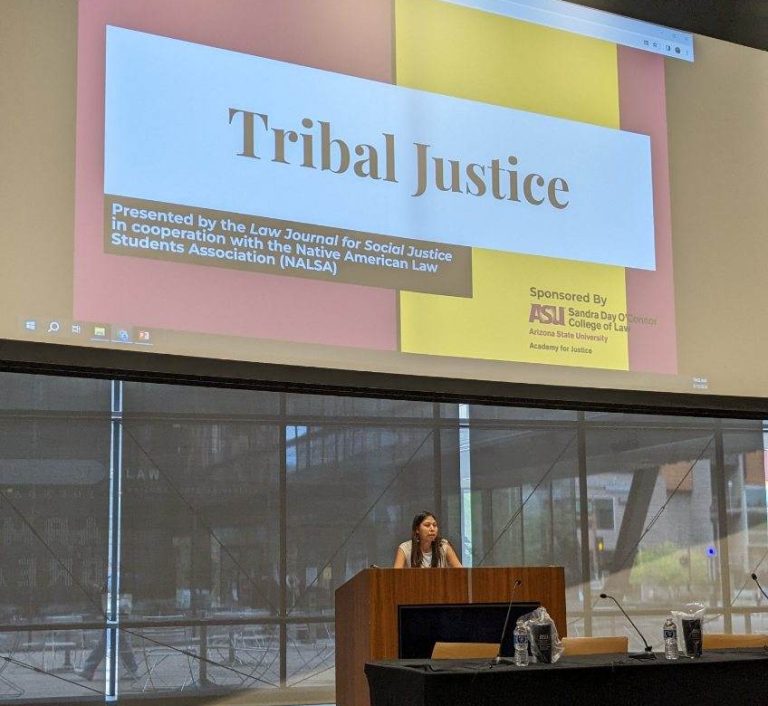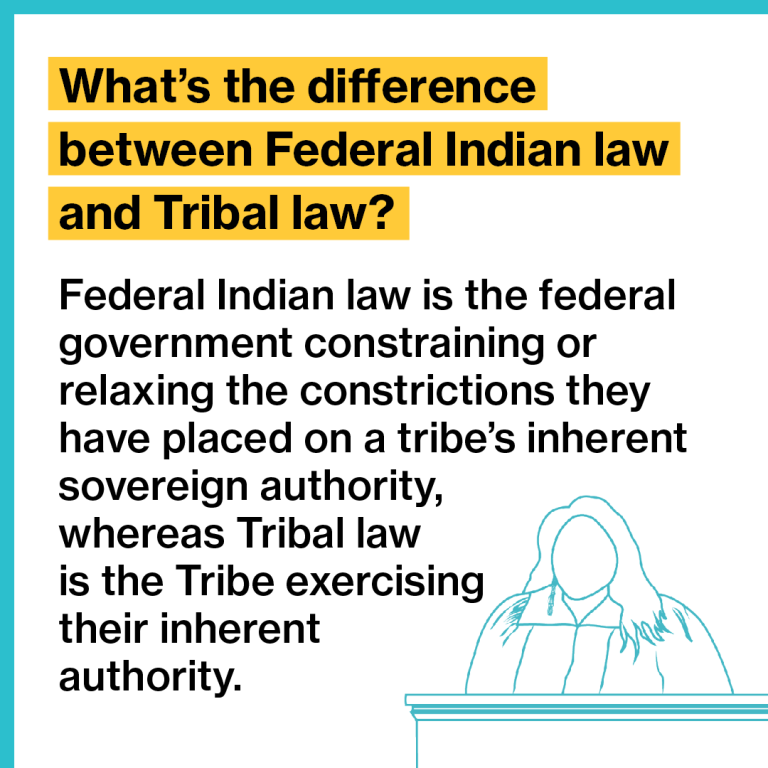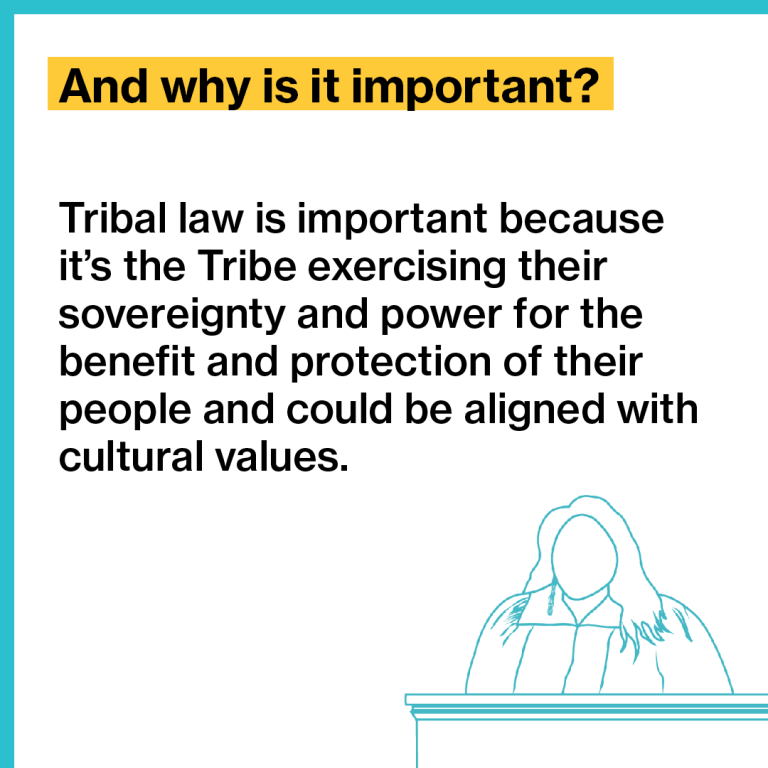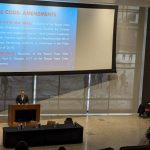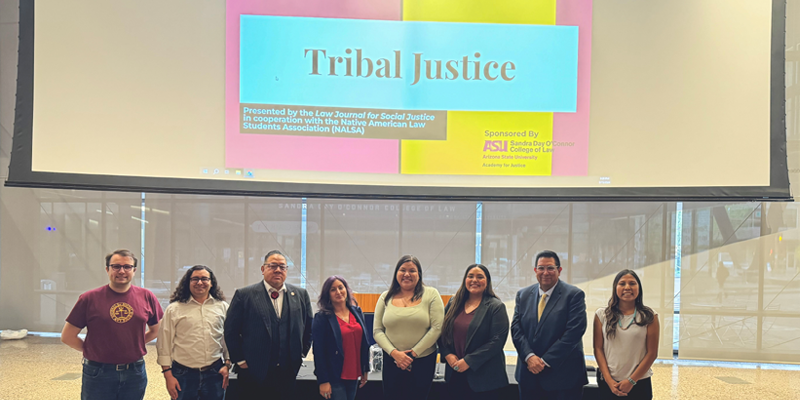
ASU Native American Law Students Association and Law Journal for Social Justice joined forces to host a symposium on March 15. The Symposium of Tribal Justice informed the audience on Federal Indian law and Tribal Law and how Tribal Nations form and regulate their justice systems in alignment with both cultural values and protecting their communities.
Natalia Sells, a third-year law student, helped organize the event and explains the difference between Federal Indian law and Tribal law: Federal Indian law is the federal government constraining or relaxing the constrictions they have placed on a tribe’s inherent sovereign authority, whereas tribal law is the tribe exercising their inherent authority. Tribal law is important because it’s the tribe exercising their sovereignty and power for the benefit and protection of their people and could be aligned with cultural values.
Derrick Beetso (’10), professor of practice and director of Indian Gaming and Tribal Self-Governance programs, presented on Jurisdiction in Indian Country, and Alfred Urbina, attorney general for the Pascua Yaqui Nation, presented on the Tribal Law and Order Act (TLOA) and the Violence Against Women Act (VAWA). Presenters on the Tribal Judges panel included April Olson (’06), chief judge for Tolowa Dee-ni’ Nation, appellate judge for Hualapai Nation and appellate judge for Fond du Lac Band of Lake Superior Chippewa, and Honorable Anthony Hill (’06), chief judge of the Gila River Indian Community Court.
“What I loved best was all the speakers are Indigenous attorneys working towards the mission of strengthening tribes,” said Sells. “The presenters are truly our role models about the good work our law degrees can accomplish in Indian Country. I had never considered it before until I had the opportunity to work for a tribal court and upon meeting Judge Hill. Judge Hill always spoke highly about the role a tribal court judge had in the community, especially when one is from the community. I see serving as a tribal court judge as a great way to help one’s community in providing a stable judicial system that upholds tribal law that was enacted with the people and culture in mind.”
We appreciate ASU NALSA, LJSJ and the Academy for Justice for organizing a great event!

